Blog
Air Conditioner Vs Heat Pump: Which Is Best For You?
When it comes to choosing the right HVAC system for your home in Calgary, understanding the key differences between air conditioners and heat pumps is crucial. Both options have their strengths, but depending on your specific needs and local climate, one might serve you better than the other. We’d like to dive into the intricacies of each system to help you pinpoint which will serve you best, so here’s our breakdown of the air conditioner vs. heat pump debate.
Comparing AC & Heat Pumps Performance
Air Conditioners
Air conditioners are stalwarts of summer, effortlessly extracting indoor heat to keep your living spaces pleasantly cool. Their straightforward functionality is tailored specifically for lowering temperatures, making them an ideal choice during the warmer months.
- Pros:
- Peak performance in warm weather.
- Simpler operation leads to potentially lower maintenance needs.
- Cons:
- Cooling only; additional heating equipment needed for year-round comfort.
- Can lead to higher operational costs if not managed efficiently.
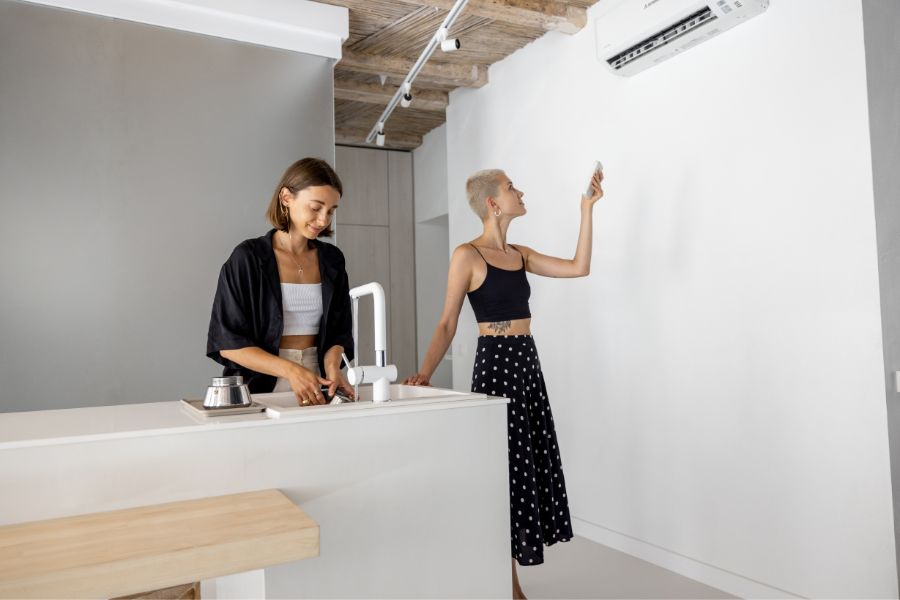
Heat Pumps
Heat pumps are the jacks-of-all-trades in HVAC, capable of both heating and cooling your home. They mirror the cooling functionality of air conditioners in the summer, while in colder months, they extract outdoor heat to warm your interiors. Their efficiency, however, can falter when temperatures dip too low.
- Pros:
- Provide both heating and cooling, reducing the need for additional systems.
- Generally more energy-efficient across seasons in moderate climates.
- Cons:
- Efficiency can decrease in extreme cold, necessitating backup heating.
- Higher initial costs and potential for more complex repairs.
Energy Efficiency: Air Conditioner Vs Heat Pump
Air Conditioners
Air conditioners are evaluated for efficiency using the Seasonal Energy Efficiency Ratio (SEER), with higher ratings indicating better performance. They are especially cost-effective in regions with long, hot summers.
- Pros:
- Effective cooling with potentially high SEER ratings.
- Lower initial investment compared to heat pumps.
- Cons:
- Only cool; a separate heating system is required, which could increase total energy usage.
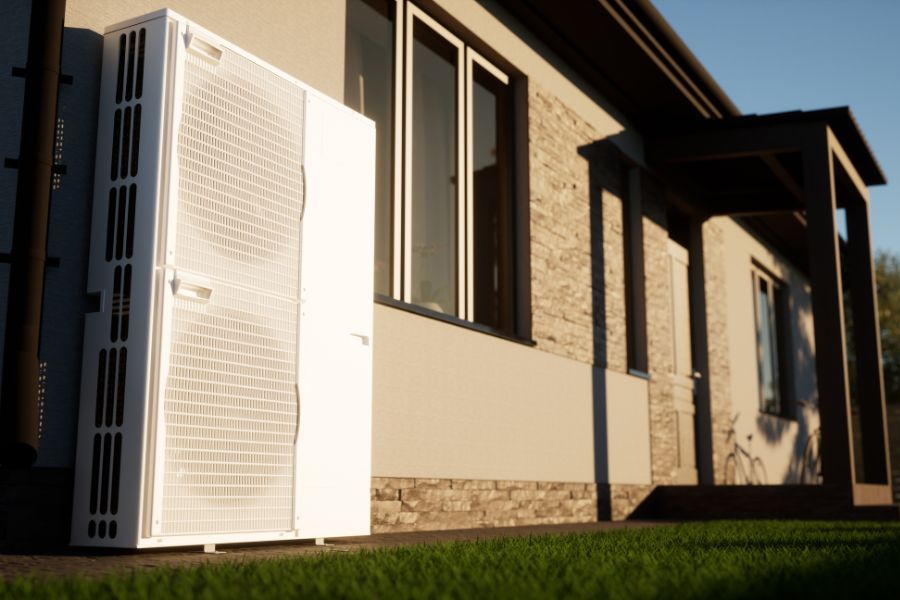
Heat Pumps
Heat pumps also use SEER for cooling efficiency but add the Heating Seasonal Performance Factor (HSPF) for heating. This dual assessment reflects their year-round utility.
- Pros:
- High SEER and HSPF ratings for efficient cooling and heating.
- Can reduce total heating costs in suitable climates.
- Cons:
- Performance and efficiency drop in freezing conditions.
- Initial and maintenance costs are generally higher.
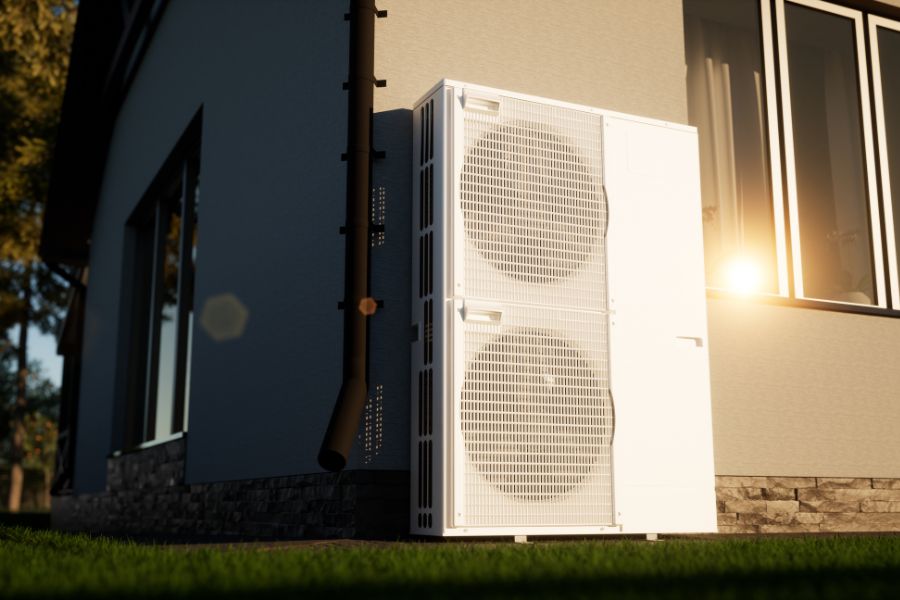
Are AC Units or Heat Pumps More Suited To Calgary Summers?
Air Conditioners
In the context of Calgary’s dry summer climate, air conditioners are particularly effective. They not only cool the air but help in dehumidifying the interiors, making them comfortable during the peak summer heat.
- Pros:
- Ideal for the dry, warm summers typical of Calgary.
- Simpler mechanics make for easier maintenance.
- Repairing Air Conditioners tends to be a cheaper, faster process.
- Cons:
- No heating capability, requiring a separate system for year-round climate control.
Heat Pumps
While heat pumps can efficiently serve dual purposes, their performance in might be compromised during the severe cold spells of winter. Although, in general, they are quite capable during the summer months.
- Pros:
- Versatility in providing both cooling and heating.
- Potential for year-round energy savings in milder conditions.
- Cons:
- Less effective in extreme cold without auxiliary heating systems.
- Initial costs and complexity might deter some homeowners.
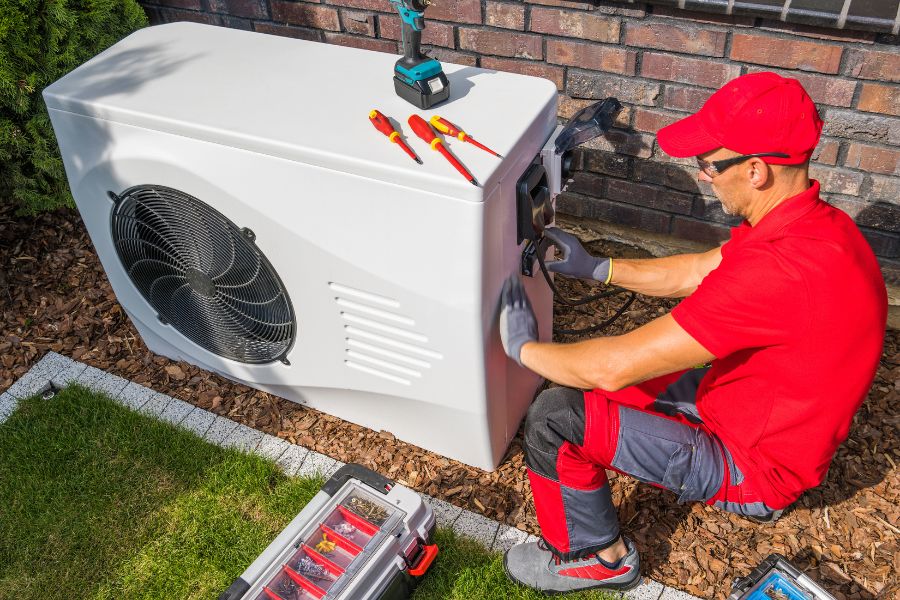
Evaluating the Cost of AC Units Vs Heat Pumps
Air Conditioners
The cost-effectiveness of air conditioners is one of their most attractive features, particularly when the focus is solely on cooling. The financial considerations for air conditioners are split into initial outlay, operational costs, and long-term maintenance.
- Pros:
- It’s generally less expensive to install air conditioning units, making them more accessible for immediate installation.
- Simpler design may lead to lower average repair costs over the lifespan of the unit.
- Cons:
- Only provide cooling, necessitating an additional heating system which can double the total installation and maintenance costs.
- Continuous use during long hot periods can drive up electricity bills, particularly for older, less efficient models.
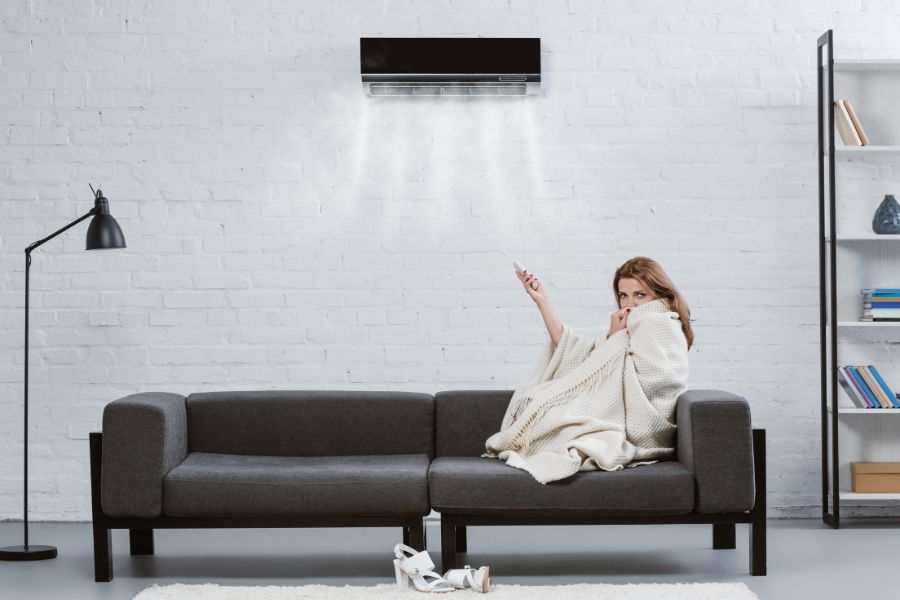
Heat Pumps
Heat pumps require a greater initial investment but can offer significant savings over time due to their dual functionality and energy efficiency. That being said, these savings are heavily influenced by the climate and the specific heating and cooling needs of the household.
- Pros:
- Although upfront costs are higher, the ability to both heat and cool can eliminate the need to install and maintain a separate heating system, potentially reducing overall home system costs.
- Efficient models can significantly lower energy bills, particularly in climates that do not experience extreme cold.
- Cons:
- Higher initial purchase and installation costs, which can be a barrier for some households.
- In areas with harsh winters, the need for supplemental heating systems during cold spells can offset the energy savings.
Your Takeaway
Choosing between an air conditioner and a heat pump for your Calgary home boils down to evaluating your specific needs, local climate conditions, and long-term energy costs. Air conditioners provide a reliable and effective solution for the hot summers, making them a preferred choice for immediate and focused cooling needs. However, for those looking for an all-in-one solution and are okay with the potential need for supplementary heating solutions in the winter, a heat pump might be worth considering.
